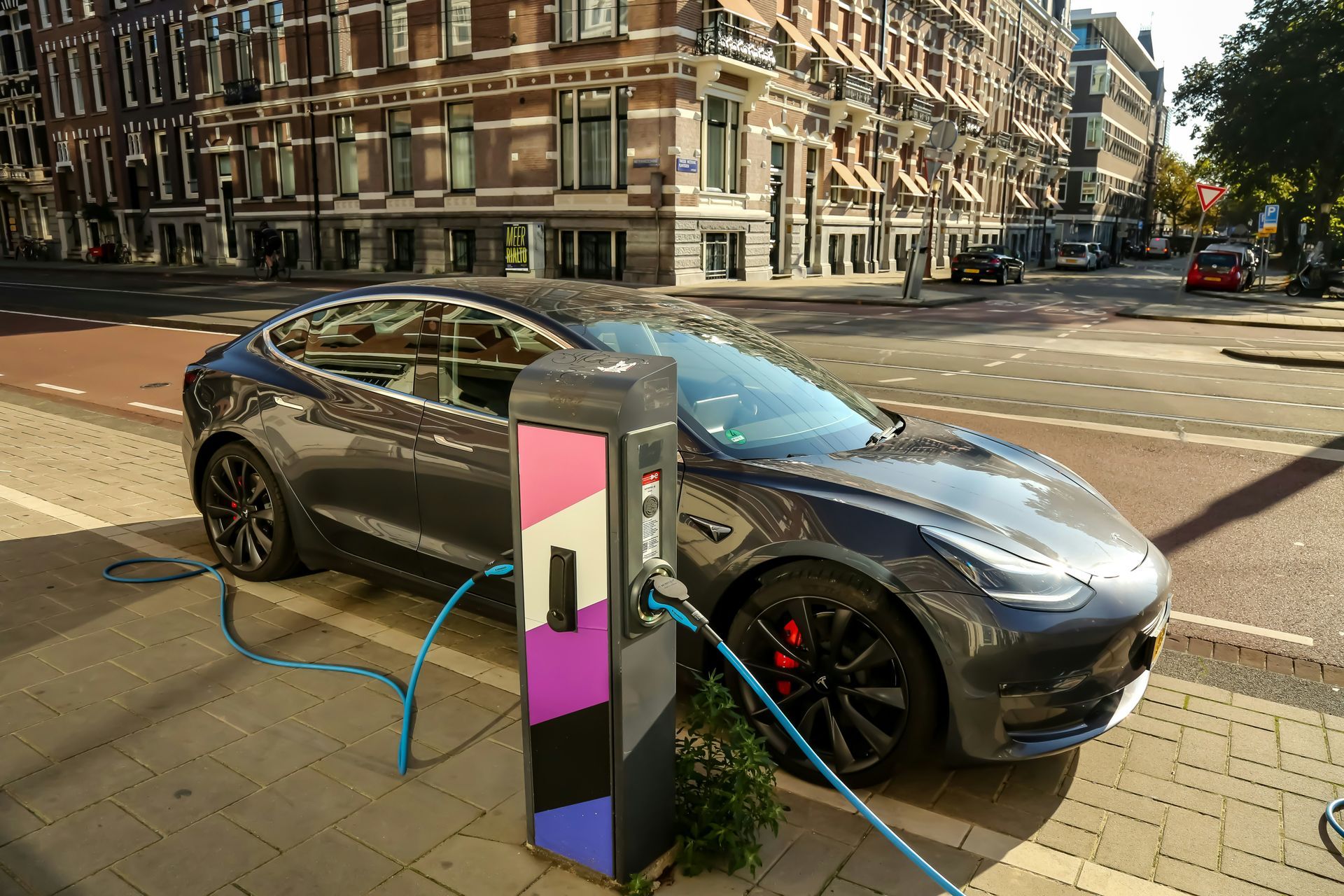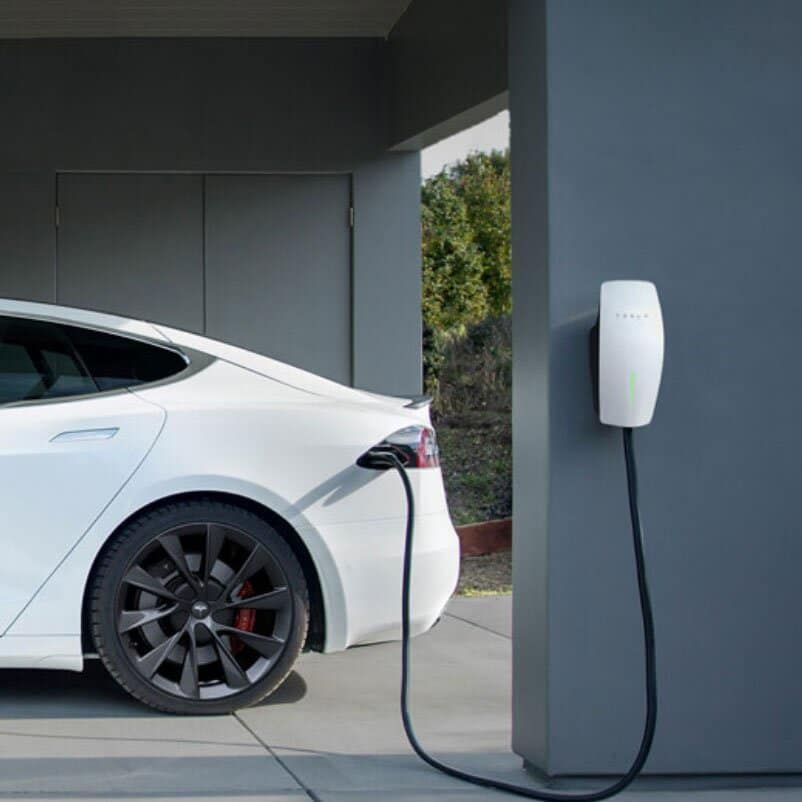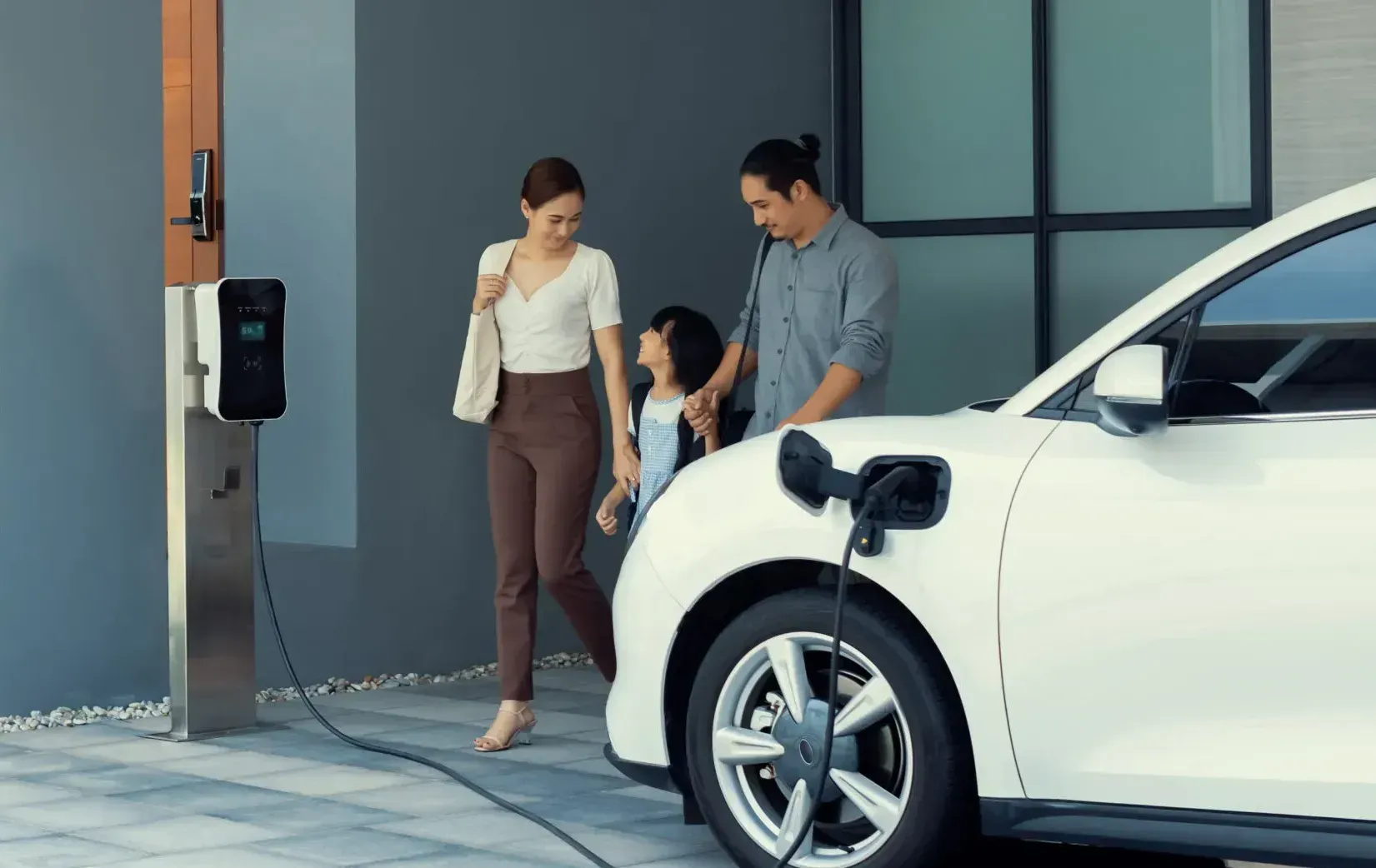Top 10 Benefits of Workplace EV Charging Stations for Employers and Employees
Advantages of workplace charging stations for both employees and employers.
Introduction
The electric vehicle revolution is well underway, with EV sales reaching record numbers year after year. As more employees choose electric vehicles for their daily commute, forward-thinking businesses are responding by installing workplace charging stations. This growing trend represents more than just an amenity—it's becoming an essential component of modern workplace infrastructure.
Workplace charging stations offer employees the convenience of charging their vehicles while at work, addressing one of the primary concerns for EV owners: access to reliable charging. For businesses, these installations represent an opportunity to demonstrate environmental leadership while providing tangible benefits that extend beyond sustainability goals.
In this comprehensive guide, we'll explore the numerous advantages workplace charging stations offer to both employees and employers, from attracting top talent to qualifying for valuable tax incentives.
1. Attracting and Retaining Talent
The Competitive Edge in Recruitment
In today's competitive job market, companies are constantly seeking ways to differentiate themselves to attract top talent. Workplace EV charging stations have emerged as a powerful recruitment tool, particularly for environmentally conscious professionals. According to a recent survey by Global Workplace Analytics, 80% of workers report that they would choose an employer with sustainable workplace practices over one without, all other factors being equal.
For the growing population of EV owners, workplace charging isn't just an attractive perk—it can be a decisive factor when considering job offers. By installing charging infrastructure, businesses signal their commitment to supporting employees' sustainable lifestyle choices, which resonates strongly with eco-minded professionals.
Appealing to the Values of the Modern Workforce
Millennials and Gen Z workers, who now make up the majority of the workforce, consistently rank environmental responsibility among their top priorities when evaluating potential employers. These generations are also leading the charge in EV adoption. By offering charging stations, companies demonstrate alignment with these values, helping them attract and retain this vital talent demographic.
The influence extends beyond just EV owners. Even employees who don't yet own electric vehicles view workplace charging infrastructure as evidence of a company's forward-thinking approach and commitment to sustainability—attributes that enhance employer brand appeal across the board.
2. Enhancing Employee Satisfaction
The Convenience Factor
For EV-driving employees, the ability to charge at work solves a significant logistical challenge. The average American spends approximately 8-9 hours at work daily—precisely the time needed for most Level 2 charging stations to fully charge an electric vehicle. This synergy creates a seamless experience where vehicles charge while employees work, eliminating the need for special trips to public charging stations.
This convenience translates directly into improved quality of life. Employees no longer need to rearrange their schedules to accommodate charging stops, reducing stress and saving valuable personal time. For many, workplace charging means their vehicle is always ready for the commute home or any after-work activities, providing peace of mind that contributes significantly to overall job satisfaction.
Reducing Range Anxiety
Range anxiety—the fear of running out of charge before reaching a charging station—remains one of the primary psychological barriers to EV adoption. Workplace charging effectively eliminates this concern for daily commuters, making the transition to electric vehicles more accessible and appealing for employees considering the switch.
For employees living in multi-unit dwellings without home charging options, workplace charging can be particularly valuable, sometimes serving as their primary charging solution. By removing this barrier, employers enable a broader range of employees to consider electric vehicles, supporting greater adoption of sustainable transportation options across their workforce.
Financial Benefits for Employees
The economic advantages of workplace charging for employees are substantial. With the rising costs of gasoline, electric vehicle charging represents significant savings on commuting expenses. Consider these figures:
- The average American commuter spends $2,000-3,000 annually on gasoline.
- Electric vehicle charging costs approximately 60-80% less than equivalent gasoline fuel.
- When charging at work (often provided as a free benefit), employees can save $1,200-2,400 annually.
These savings directly impact employee financial wellbeing, functioning effectively as a tax-free benefit that enhances total compensation packages. Even in scenarios where employers charge a nominal fee for workplace charging, the rates are typically well below commercial charging stations, maintaining the economic advantage for employees.
3. Positive Corporate Image
Demonstrating Environmental Leadership
Installing workplace charging stations sends a clear message about a company's commitment to sustainability and environmental stewardship. This visible investment in green infrastructure demonstrates that a business is taking concrete action to reduce its carbon footprint, not just making empty promises about environmental responsibility.
For businesses with sustainability goals or ESG (Environmental, Social, and Governance) commitments, EV charging infrastructure provides measurable progress that can be reported to stakeholders, investors, and customers. The reduction in greenhouse gas emissions achieved through supporting electric commuting can contribute significantly to a company's environmental performance metrics.
Enhancing Brand Perception
Today's consumers increasingly prefer to do business with environmentally responsible companies. According to a recent Nielsen study, 73% of global consumers say they would definitely or probably change their consumption habits to reduce their environmental impact. By visibly supporting electric vehicle adoption, businesses improve their brand perception among this growing demographic.
Charging stations are highly visible sustainability investments—they're noticed not just by employees but by visitors, clients, and the surrounding community. Companies can leverage this visibility through marketing efforts, sharing the positive environmental impact of their charging infrastructure across various channels to enhance their reputation for corporate responsibility.
Alignment with Corporate Sustainability Goals
Most major corporations now maintain formal sustainability commitments, including carbon reduction targets. Transportation-related emissions often represent a significant portion of a company's carbon footprint, particularly when accounting for employee commuting in Scope 3 emissions reporting.
By encouraging electric vehicle adoption through workplace charging, businesses directly address this emissions source. Companies can quantify these reductions for sustainability reporting, demonstrating tangible progress toward climate goals. For businesses pursuing certifications like LEED (Leadership in Energy and Environmental Design), EV charging installations contribute valuable points toward certification requirements.
4. Cost Benefits for Employers
Operational Advantages
Beyond the immediate benefits to employees, workplace charging stations offer several operational advantages that create long-term value for employers:
Employee Productivity
When employees can charge at work, they save time that would otherwise be spent at public charging stations. This time savings translates into increased productivity, with fewer work hours lost to charging-related errands. Additionally, the reduced stress associated with charging convenience contributes to improved employee focus and engagement.
Reduced Tardiness
Weather events that impact traffic often cause tardiness spikes, but electric vehicles with adequate range suffer less from such disruptions. With workplace charging ensuring employees begin each day with a full charge, the likelihood of charge-related delays is virtually eliminated, contributing to more reliable attendance patterns.
Fleet Transition Support
For companies transitioning their corporate fleets to electric vehicles, workplace charging infrastructure serves double duty. The same stations that benefit employees during work hours can charge company vehicles overnight, maximizing the utility of the charging investment and supporting fleet electrification efforts.
Parking Management Benefits
EV charging stations can also enhance parking management strategies:
- Reserved parking: Charging spaces naturally create a category of reserved parking that can be managed separately from general parking.
- Turnover incentives: Time-based charging policies encourage vehicle turnover in charging spaces, improving utilization rates.
- Usage data: Smart charging stations provide detailed usage analytics that inform future parking infrastructure decisions.
For facilities with limited parking, these management benefits help optimize space utilization while providing the added benefit of EV charging.
5. Tax Benefits and Incentives
Federal Incentives
The financial case for workplace charging is strengthened substantially by available tax benefits and incentives. At the federal level, the Alternative Fuel Vehicle Refueling Property Credit provides a tax credit of up to 30% of the cost of installing qualified EV charging equipment, with a maximum credit of $30,000 for commercial installations. This incentive significantly reduces the effective cost of implementation.
Additionally, businesses can potentially claim depreciation deductions for charging infrastructure, further improving the return on investment timeline. These federal incentives are designed specifically to encourage business adoption of EV charging technology, recognizing the critical role employers play in expanding charging networks.
State and Local Programs
Beyond federal incentives, many states and local utilities offer additional programs that can dramatically reduce installation costs:
- State tax credits: Many states offer tax credits or rebates specifically for workplace charging installations, sometimes covering up to 50% of equipment and installation costs.
- Utility rebates: Electric utilities frequently provide rebates for charger installation as part of their electrification initiatives, sometimes including free or discounted electrical service upgrades.
- Grant programs: State and local environmental agencies administer grant programs targeting workplace charging, especially in areas with air quality challenges.
These incentives can be combined with federal benefits in many cases, sometimes reducing the net cost of installation by 60-80%. The availability and specifics of these programs vary by location, making it essential to consult with EV charging installation experts familiar with local incentives.
Enhanced Property Value
The installation of charging infrastructure can also enhance commercial property values. As electric vehicles become more common, properties with existing charging infrastructure become more attractive to potential tenants and buyers. Commercial real estate with charging capabilities typically commands premium rates and experiences reduced vacancy compared to similar properties without charging options.
For businesses that own their facilities, this represents an appreciating capital investment beyond the immediate operational benefits. Even for companies that lease their space, negotiating with property owners to install charging stations can increase property value while securing a valuable employee benefit.
Conclusion
The case for workplace EV charging stations has never been stronger. From attracting and retaining top talent to qualifying for substantial tax incentives, the benefits extend far beyond simply keeping employees' vehicles charged. As electric vehicles continue their trajectory toward becoming the dominant form of transportation, workplace charging infrastructure represents a forward-thinking investment that positions companies at the forefront of the sustainable transportation revolution.
For businesses considering implementation, the combination of employee benefits, operational advantages, and financial incentives creates a compelling value proposition. The positive impact on corporate image and alignment with sustainability goals further strengthens the case for installation.
The shift to electric transportation is accelerating, and workplaces that provide charging infrastructure will increasingly be seen as meeting a basic expectation rather than offering a luxury perk. Forward-thinking businesses are acting now to capture the full range of benefits while demonstrating leadership in sustainable workplace practices.
Ready to explore workplace charging for your business?
MyEVExperts specializes in custom workplace charging solutions designed to maximize benefits for both employers and employees. Our experienced team can guide you through the entire process—from initial site assessment through incentive application and installation.
Contact us
today to learn more about our workplace charging solutions and take the first step toward a more sustainable, attractive workplace!











